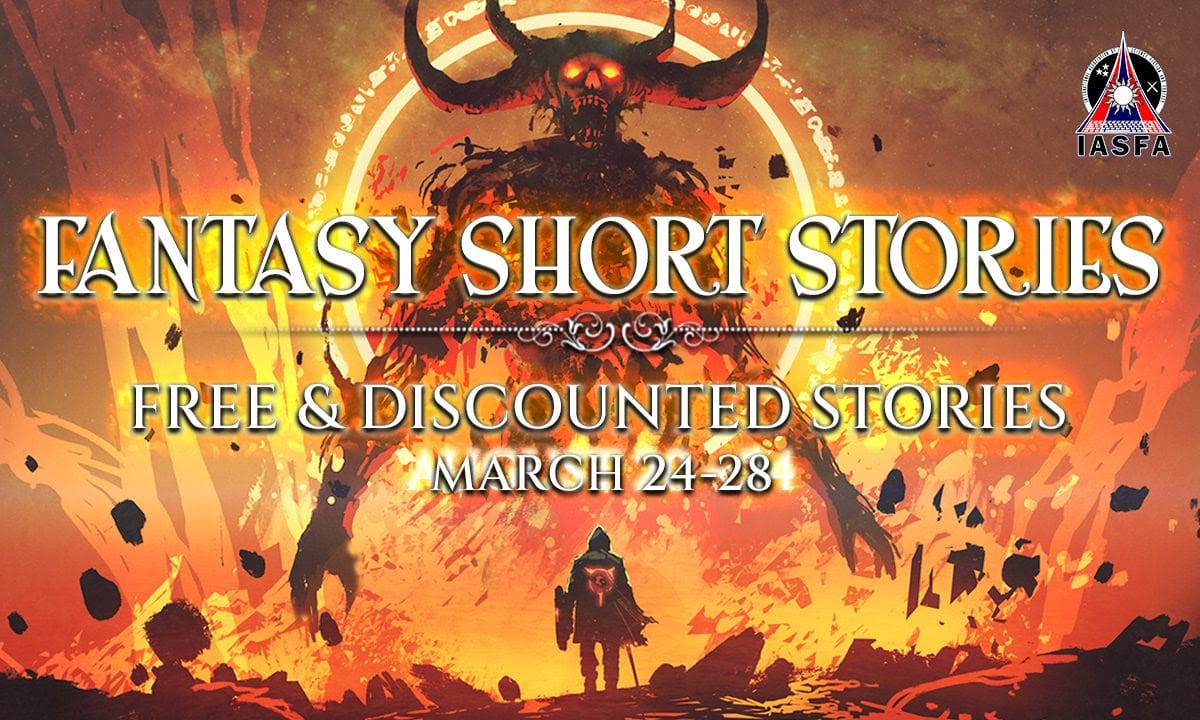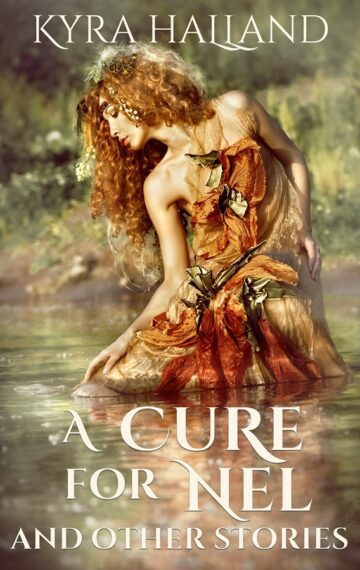A rare mid-month update: How I fell in love with the fantasy genre
Two fantasy short stories featured in promotions this week

It's not yet time for the Monthly Missive! That will make its way to you in exactly a week from now, which is incidentally the last day of the month.
Today's note is one of those rare mid-month updates I send to inform you of a limited-time promotion of one or more of my books. But it's also doubly special this time for reasons you'll see below.
Firstly, my short story, A Benevolent Goddess, is still available to grab for free until the end of this month as part of The Hero's Dilemma promotion over on BookFunnel, where a number of fantasy authors have come together to offer some of their best works for your reading pleasure.

Another short story of mine, Mrs. D'Souza's Dispute with God, is also available for free for the next five days only as part of a promotion being run by the International Association of Science Fiction and Fantasy Authors (IASFA).

You can also access other fantasy short stories that are part of the IASFA's promotion this month from March 24—28.

But, to me, the most exciting part of this promotion is that I had the opportunity to pen the introduction to the IASFA's newsletter this month!
If you're already on their mailing list, you'd have seen it. Not to worry if you aren't on their list, because I share the introduction with you here. However, if you love being introduced to a wide range of science fiction and fantasy authors and their works every month, you can always sign up to their newsletter.
So grab a cuppa and sit back to enjoy the little story of how I came to fall in love with the fantasy genre, first as a reader, and then as a writer.
how I fell in love with the fantasy genre
(my write-up for this month's IASFA newsletter)
Isn’t it funny how we spend our lives looking for something only to realize it has been with us all along?
Growing up in India in the 80s, my childhood reading interests ranged from western children’s adventures and teen sleuth mysteries (Enid Blyton, Nancy Drew, Hardy Boys, The Three Investigators) to Indian literature, including animal fables (Jataka Tales and Panchatantra) and stories based on the Hindu epics, Ramayana and Mahabharata.
My knowledge of the latter came through a wildly popular series of comics, titled Amar Chitra Katha, whose founder, Anant Pai, was reportedly shocked to discover in the 60s that Indian children were well-versed in Greek and Roman mythology but couldn’t answer questions pertaining to Indian epics in a quiz that aired on national TV.
As a child, I devoured these comic books but kept my feet firmly grounded in reality. No god would come to my rescue if I forgot to do my homework!
The first time I really lamented the absence of magic in real life was when I finished reading the first Harry Potter book at university. I turned the last page and promptly set about crafting a feather-shaped cut-out bearing the words, Wingardium Leviosa, desperate to somehow hold on to that breathtaking magic in real life.
Then I fell in love and got married, and that hunger for something otherworldly was sated. Temporarily.
Until I read Neil Gaiman’s Neverwhere and Anansi Boys, and could no longer walk down the streets without wondering if, even hoping that, some supernatural being would leap out at me around the next corner, consequences be damned.
Then Erin Morgenstern burst onto the scene with her flax-golden tales, weaving stories of fantasy and whimsy paired with photographs of ordinary life. Magic once again erupted into everyday life and I devoured her weekly offerings like a hungry ghost.
Later, when I moved to North America, I spent a considerable amount of time seeking that magic in its suburbs. In vain.
I turned to writing fantasy fiction as a salve for my disappointment. My initial attempts at short stories felt like cheap imitations of the works of Gaiman and Morgenstern.
But I kept writing, and unexpectedly, the gods of my childhood started creeping into my stories. I was worried their tales wouldn’t find an appreciative audience in North America, except among the South Asian diaspora.
Then, in an act of true magic, a dear friend pointed me to Christopher Pike’s Thirst series, formerly The Last Vampire.
Pike’s incorporation of Hindu philosophy, his depiction of Lord Krishna, and his formidable protagonist—a 5,000-year-old vampire named Sita (a Hindu goddess) in 1990s America—were so fantastic and wildly imaginative yet so respectful of Hinduism these books made me fall back in love with the very gods I had resisted writing about.
This is what fantasy does best. First, it shows you the magic that already exists in your life. Then it gives you the courage and permission to claim it for yourself.
And that, my lovely readers, is what I wanted to share with you today.
Incidentally, both the short stories of mine that feature in the promos I mentioned above, A Benevolent Goddess and Mrs. D'Souza's Dispute with God, have something to do with the gods and goddesses I read about in my childhood.
I hope you'll make the time to read these tales as well as the many others that feature in these promotional offerings, and find much delight in doing so.
I'll be back next Sunday with this month's missive.
Until then, happy reading!
~ Anitha


